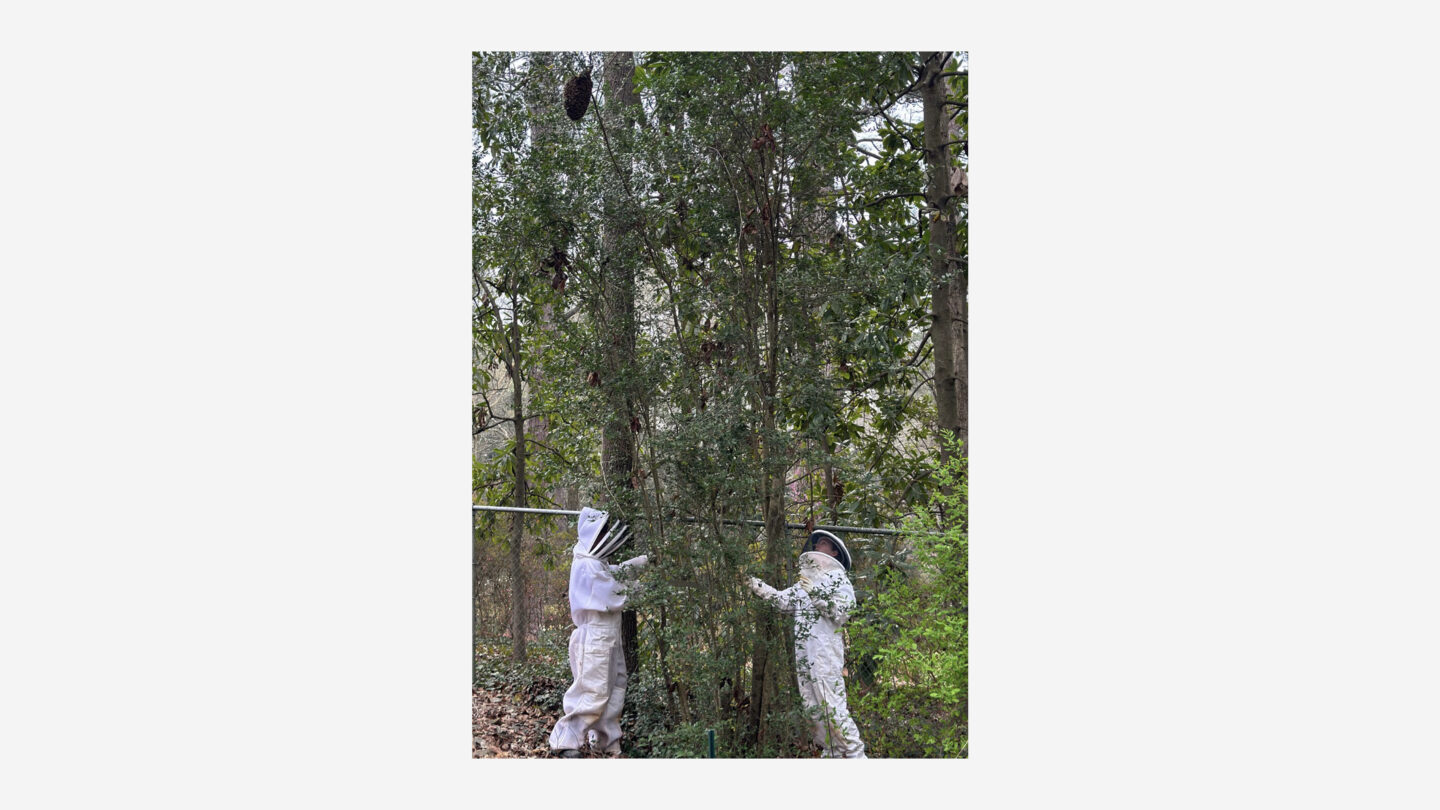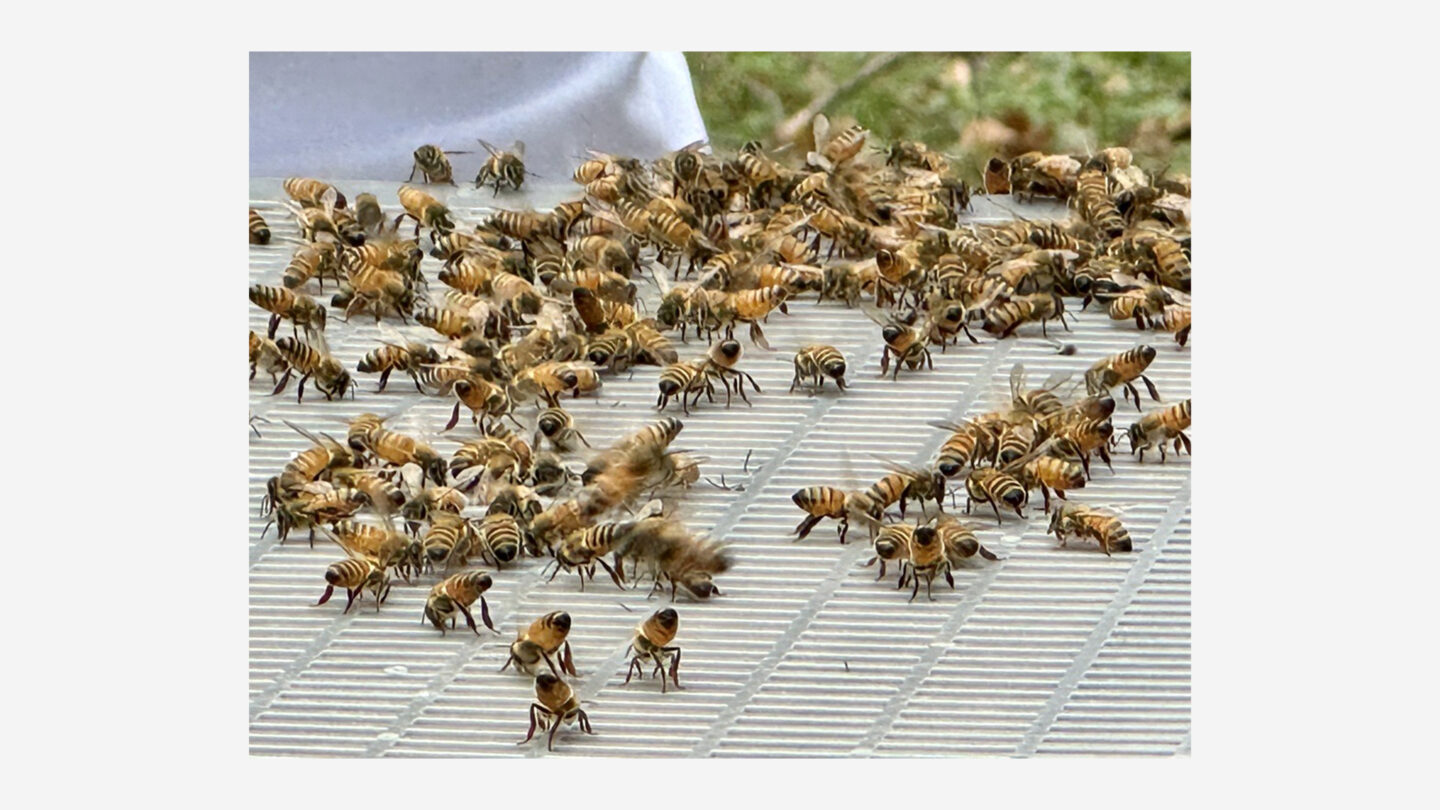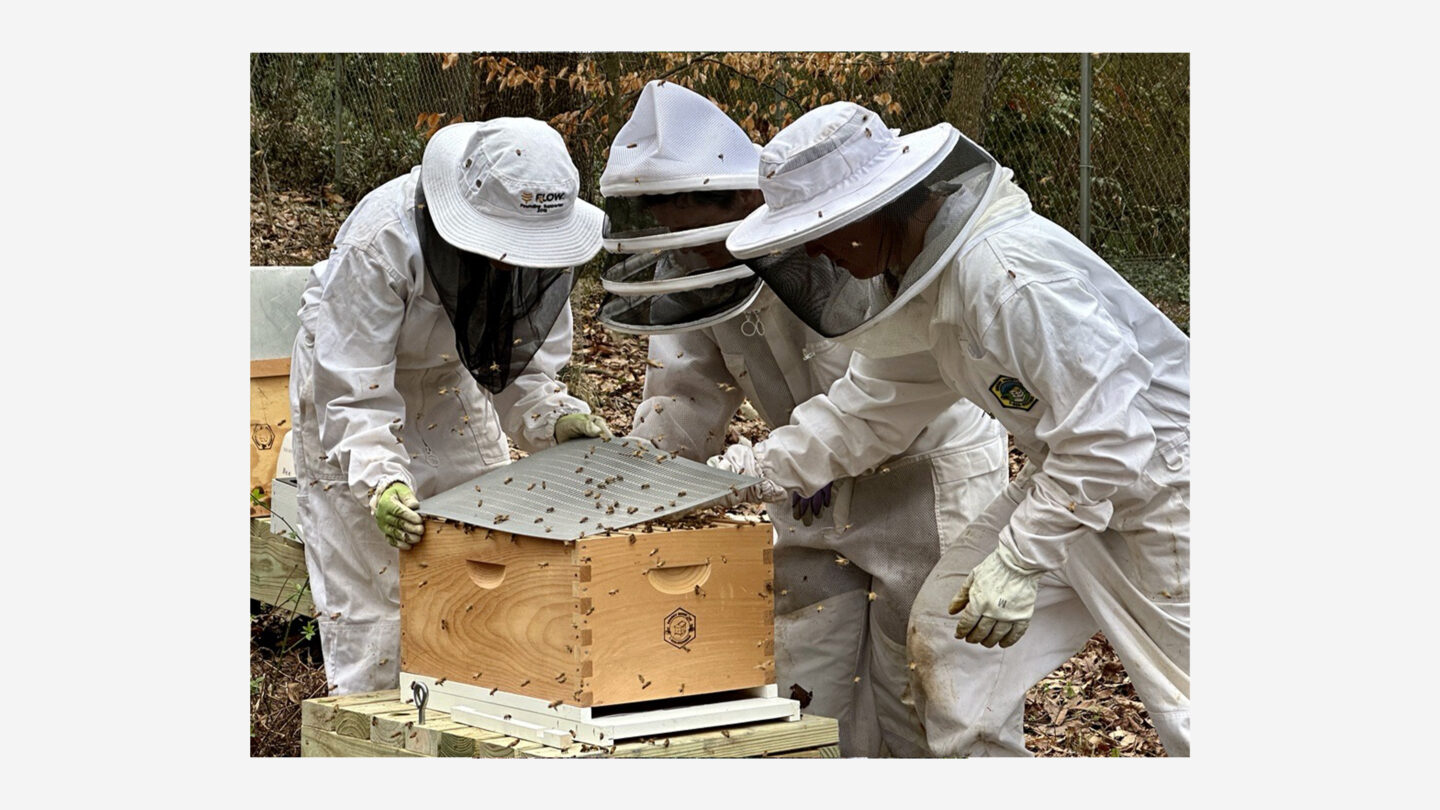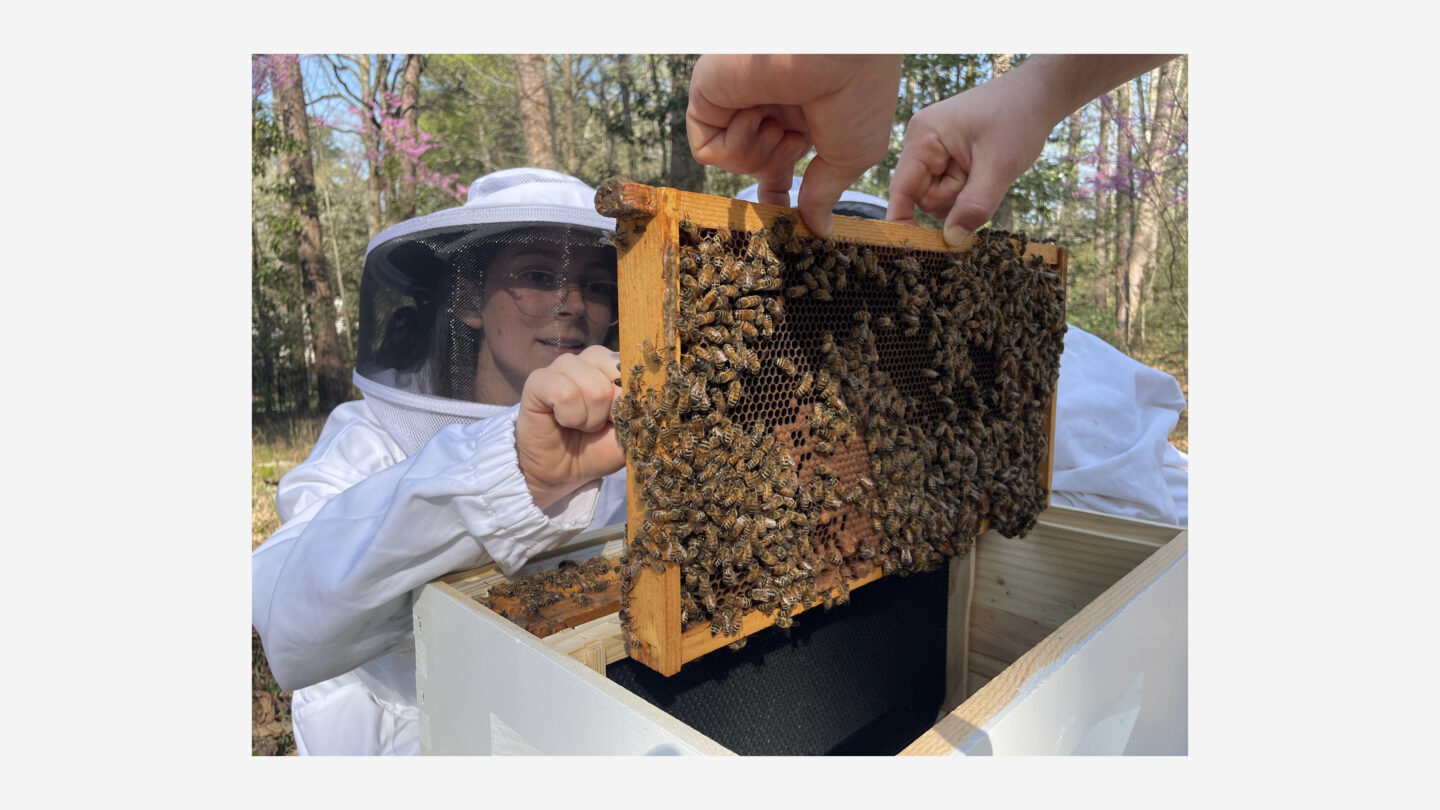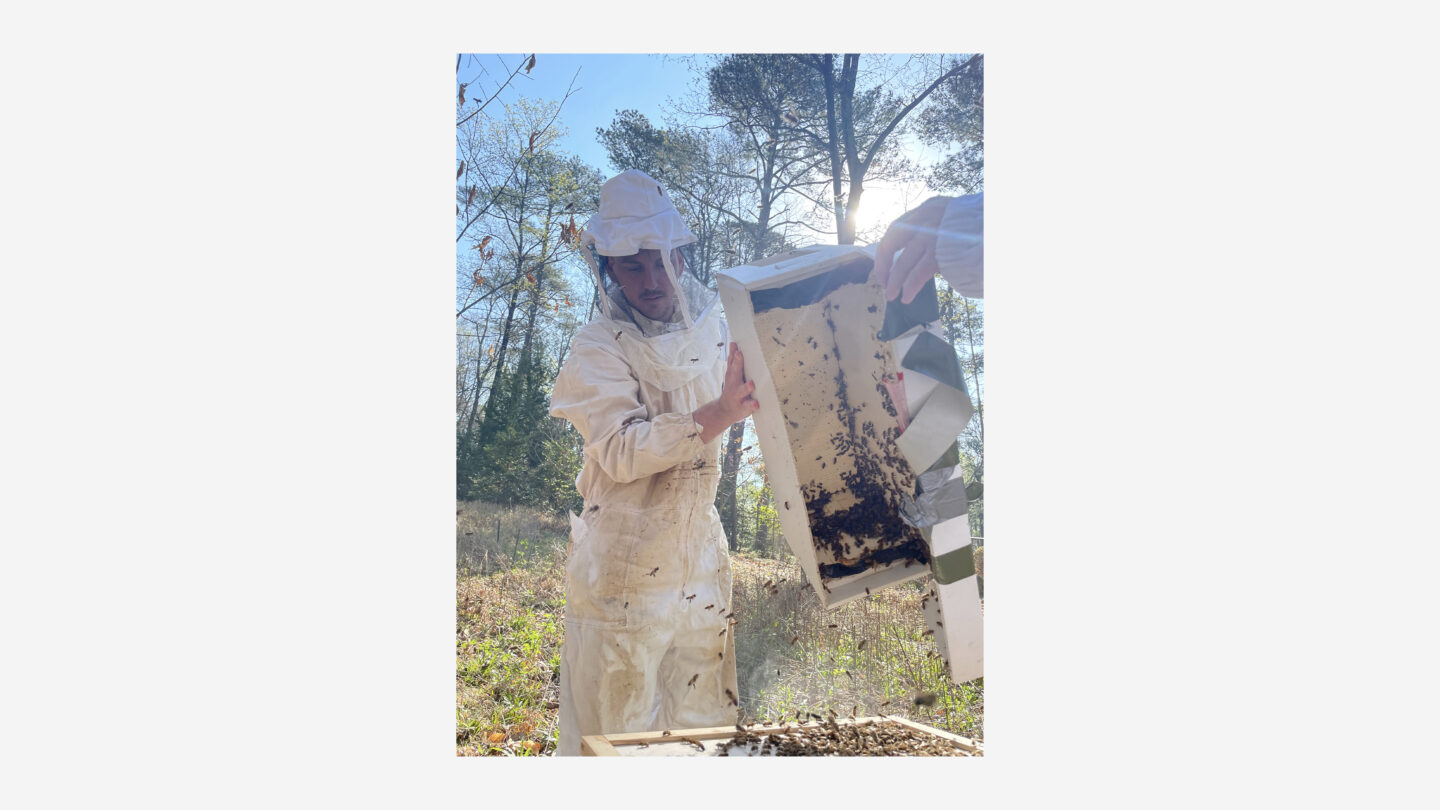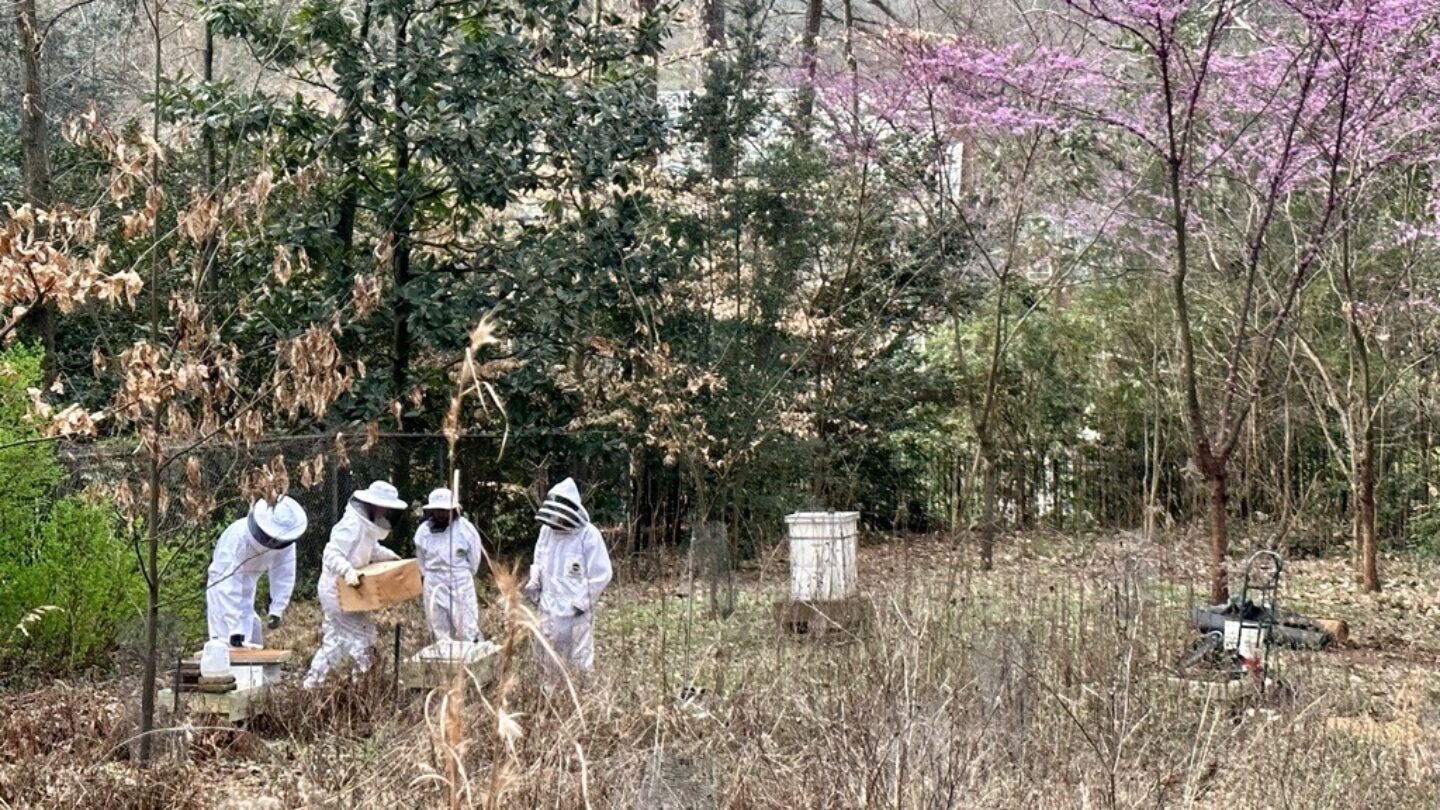
In the summer of 2022, the four honeybee colonies in Swan Woods of Goizueta Gardens collapsed without obvious cause. Honeybees battle immense pressure due to diseases, pests, lack of nutritious floral resources, and pesticide exposure (especially mosquito spraying). Determining the exact cause of colony loss is often difficult, leaving beekeepers scratching their heads and with heavy hearts. One hive received new residents in mid-September: a 5-frame nucleus colony, or nuc for short. A nuc consists of a family of bees, including several thousand workers with a queen. These are often installed in early spring when the nectar flow is at its peak, allowing the bees time to build up their winter reserves of honey and pollen. Installing this late in the season meant feeding would be necessary through the winter.
The Gardens staff bee team took on the challenge and diligently fed the bees with a sugar syrup placed under the outer cover, in an empty super, minimizing impact and interaction. Beekeepers withhold from completing hive inspections during the winter to avoid exposing the bees to frigid temperatures and breaking the internal propolis seal (a glue-like substance made by bees.) Therefore, it was not known that the colony grew exponentially over the winter. So much so the bees swarmed! Generally, a swarm consists of the old queen bee and approximately 50-60% of the worker bees. Left behind remains a new queen and a portion of the workforce. Bees often swarm when the colony’s population increases, so the bees need more space to live.
Fortunately, a team member sighted the swarm in a nearby tree while preparing the apiary for our nucs to be delivered the following week. The bee team caught the swarm from the neighboring tree and rehomed it into an existing hive. We are happy to report that both the fall-installed colony (named Shirley) and the swarm colony (named Selena) are flourishing! Learn more about how the hives got their names and the “Queen Bees” they honor here.
We have since added three additional nucs, with one more to be delivered. Two hives now reside in the Smith Farm field, where guests can observe the bees (at a safe distance, of course) buzz from their new homes as they forage around the gardens collecting nectar (for honey) and pollen (for making bee bread fed to their young.) Our Save the Bees campaign for GivingTuesday 2022 raised $4600, which allowed for increasing the number of staff trained in beekeeping, purchasing four nucs, new gear and hive equipment, and adding two new hives. These efforts would not have been possible without your generous donations!

